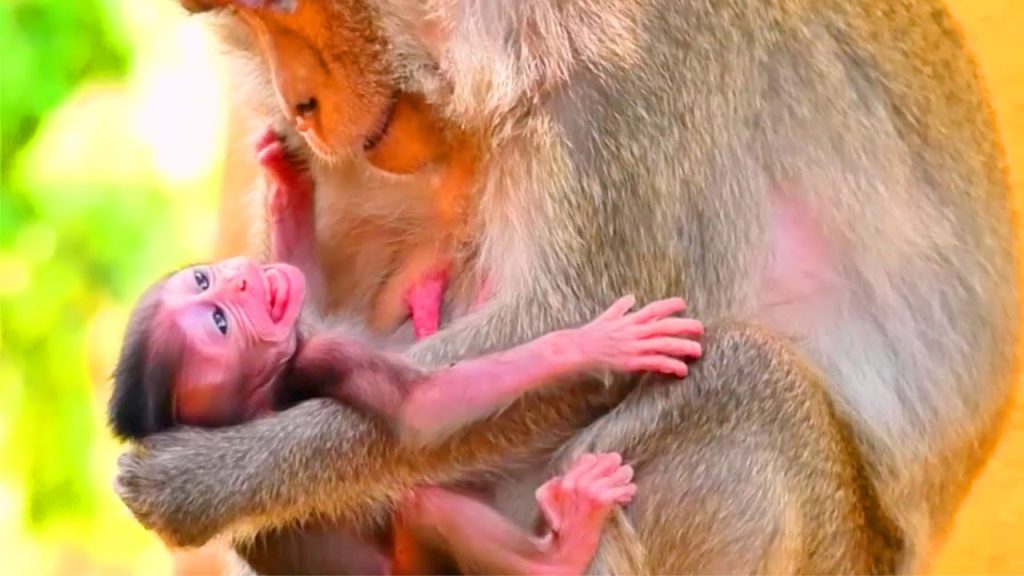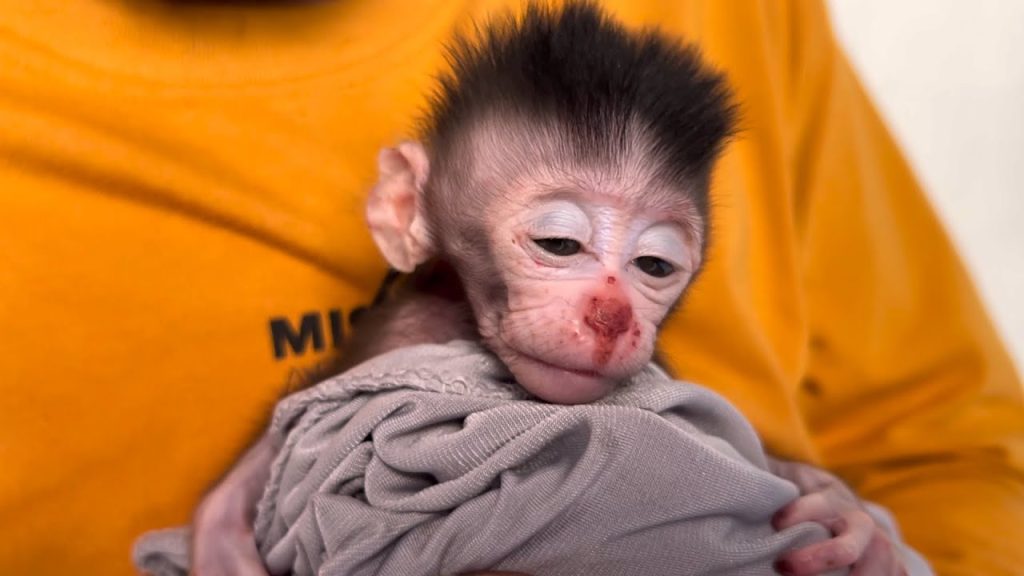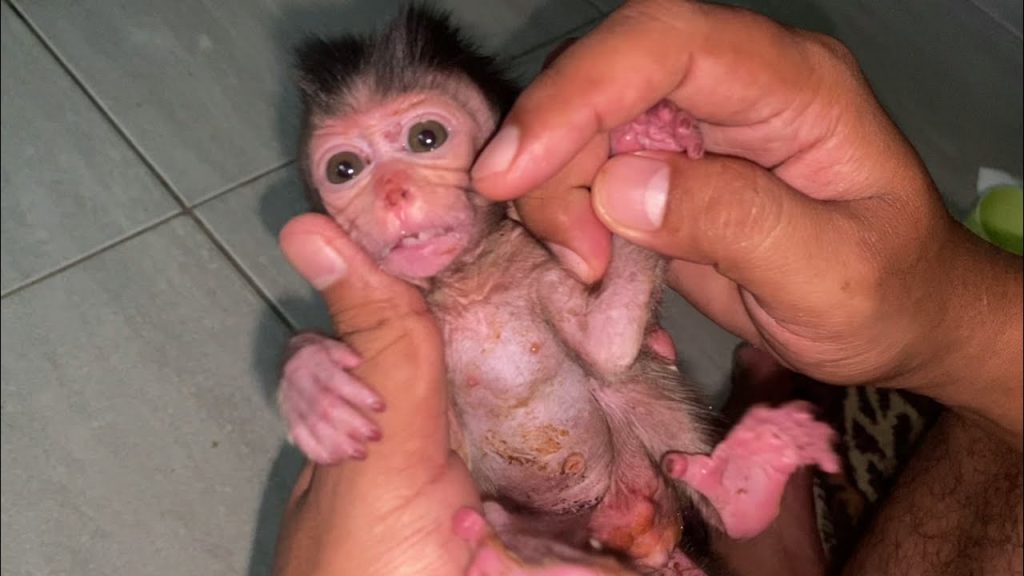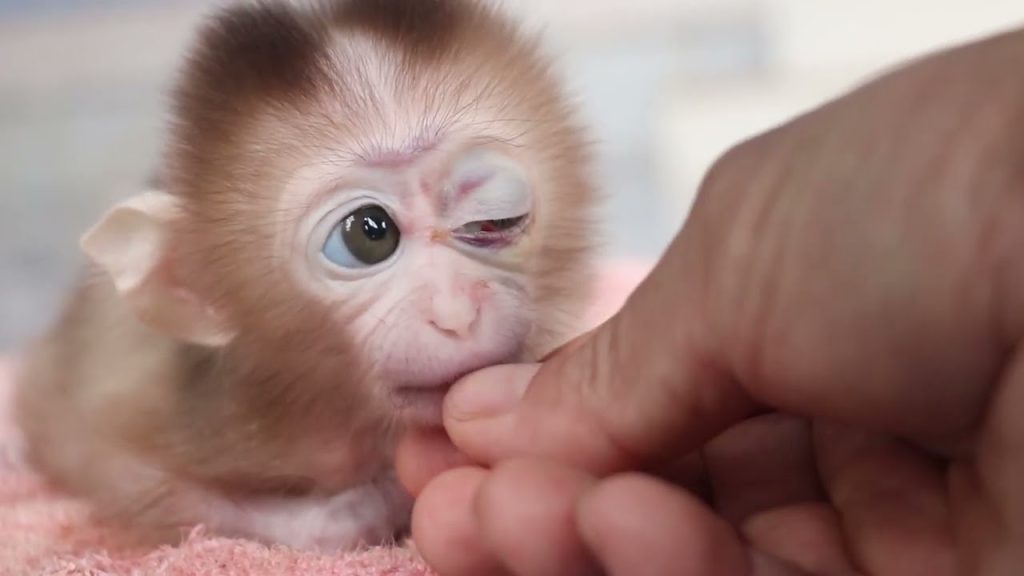
In the warmth of the afternoon sun, under a tall tree in the national park, a heartbreaking scene quietly unfolded. A small baby monkey, still clinging to the last traces of babyhood, reached desperately for his mother—his little hands trembling, his cries soft but full of sorrow. His eyes, wide with confusion, searched her face for the comfort he had always known.
But the mother had begun to wean him.
Nature’s way is often bittersweet, and for this mother, the decision was not made in cruelty. Her body was tired, her instincts shifting, pushing her baby toward independence. She nudged him away gently at first, but he kept returning, pleading for the milk that once brought warmth and calm. As he cried louder, she became firmer—pushing him aside, walking away, even swatting him gently when he clung too long.
The little one collapsed on the ground in a puddle of sadness, arms wrapped around his tiny body. His sobs echoed through the trees, unnoticed by the world that kept moving around him. For him, it was not just about food—it was about losing the closeness, the safety, the love he had known since birth.
Park visitors and caretakers watching nearby felt their hearts twist. Though this was natural behavior in wild monkey families, it didn’t make it any easier to witness. Growing up is hard, even for the smallest souls.
Eventually, the baby wiped his face and slowly followed his mother again—not to nurse, but just to be near her. Because even without milk, her presence still meant the world.


